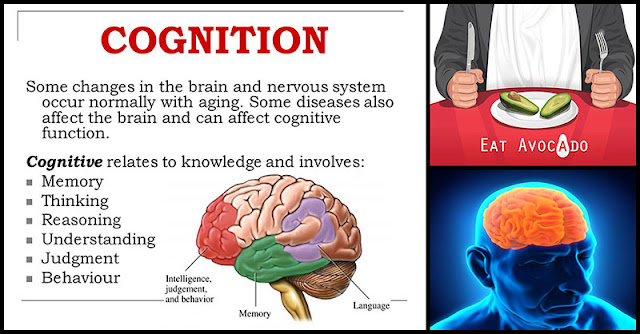Avocados are excellent sources of omega-3 fatty acids and healthy unsaturated fats. A study in the journal Nutrients reported that avocados significantly improves cognitive functions by increasing lutein levels in the brain and eyes. Scientists from Tufts University conducted the study and found that those adults aged 50 and older who ate a fresh avocado a day had increased lutein levels in their eyes and showed improved problem-solving skills as well as working memory.
Lutein is a carotenoid found in orange-and yellow-colored vegetables and fruits like carrots, sweet potatoes, squash, tomatoes, mangoes, corn, and dark, leafy vegetables such as bok choy, kale, and collards. Carotenoid protects the eyes against common disorders such as cataracts and macular degeneration. Moreover, lutein and zeaxanthin absorb harmful blue light from the sun, which can damage the retina. In a further study conducted, scientists found that the compound also plays a role in preventing blood clots in the carotid artery in the neck, one of the indicators for atherosclerosis. On the other hand, deficiency in lutein worsens arterial clogging.
Participants in the study have added one medium avocado to their diet. Their lutein levels and any improvements in cognition were measured by the researchers using various test for memory, attention, level, and processing speed. The results were then compared with a control group, which in place of the avocado, had either a cup of chickpeas or one medium potato. Researchers chose chickpeas and potatoes because both have calorie level similar to avocados, yet small amounts of monosaturated fats and lutein. The results revealed that there was 25 percent increase in lutein levels in adults who ate avocados.
Dr. Elizabeth Johnson, the lead investigator of the study, explained that the results were mainly because of the avocado’s ability to support lutein levels in the brain, which leads to an improvement in eye and brain health. Consumption of fresh avocados, in particular, was necessary for increased lutein absorption. These results posted by this study were twice higher than that of supplements, based on her previous research.
Dr. Johnson added that:
“A balanced diet that includes fresh avocados may be an effective strategy for cognitive health.”
The study, which was supported by the Hass Avocado Board, was based on the consumption of one whole avocado, which has 369 micrograms of lutein.
Dr. Nikki Ford of the Hass Avocado Board concluded that:
“While the conclusions drawn are from a single study that cannot be generalized to all populations, the study’s outcome helps to reinforce and advance the body of published research on avocado benefits and their role in everyday healthy living. Avocados are a nutrient-dense, cholesterol-free fruit with naturally good fats, and are a delicious and easy way to add more fruits and vegetables to everyday healthy eating plans.”









